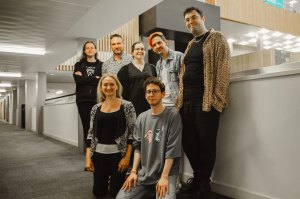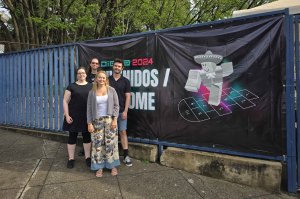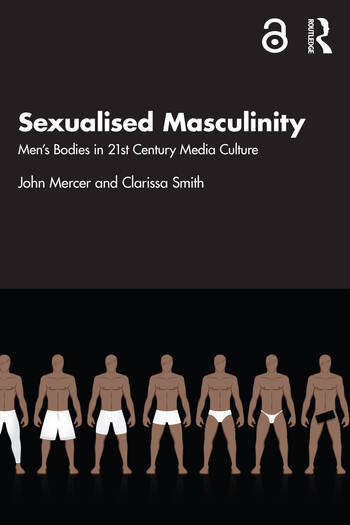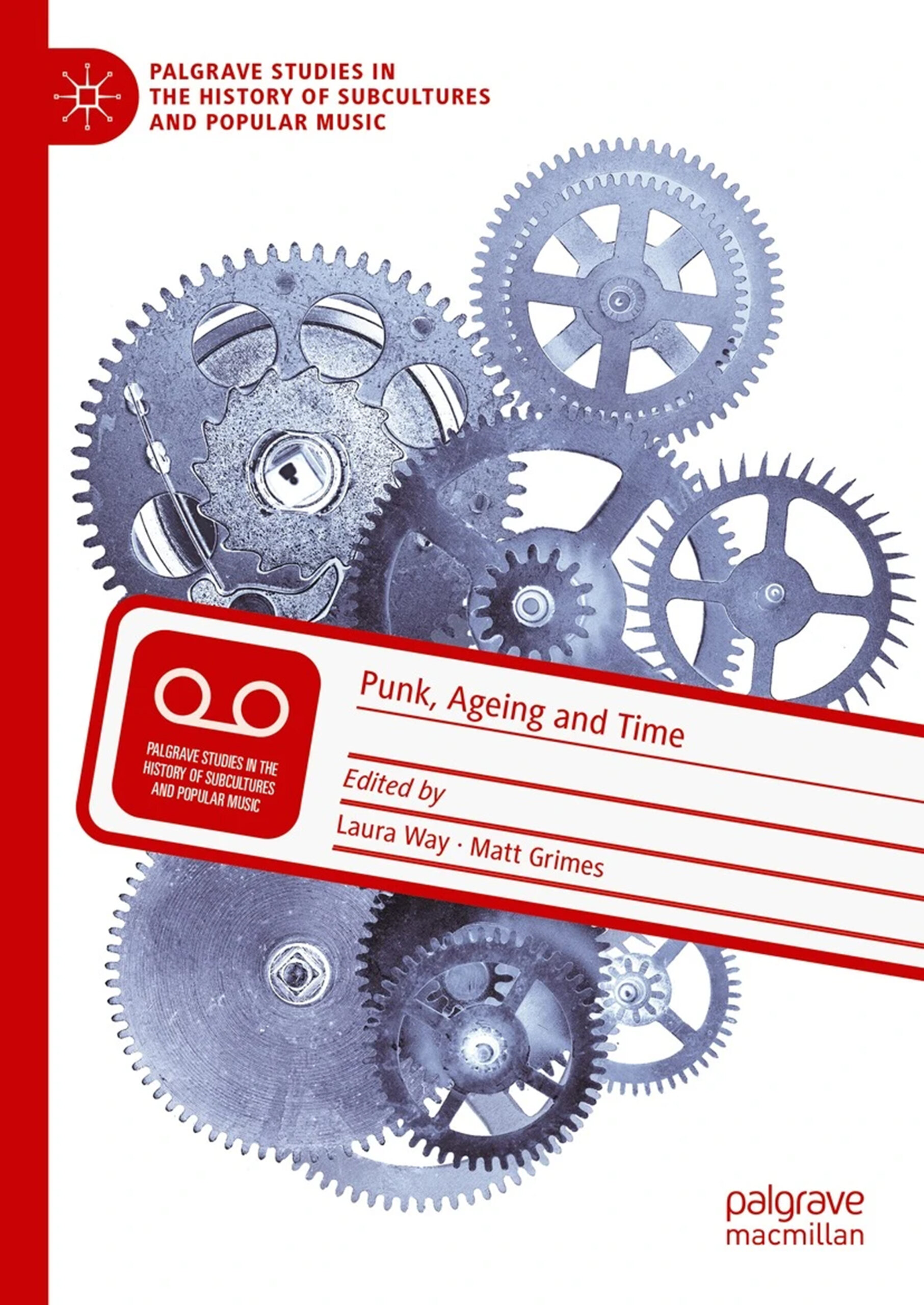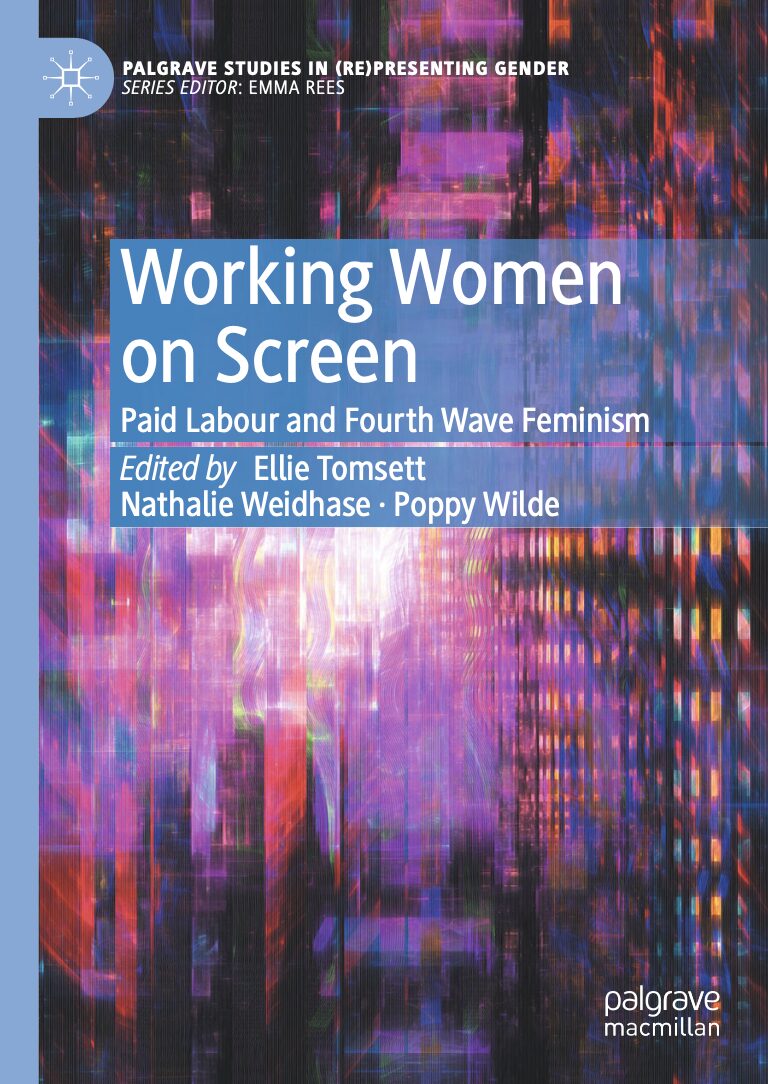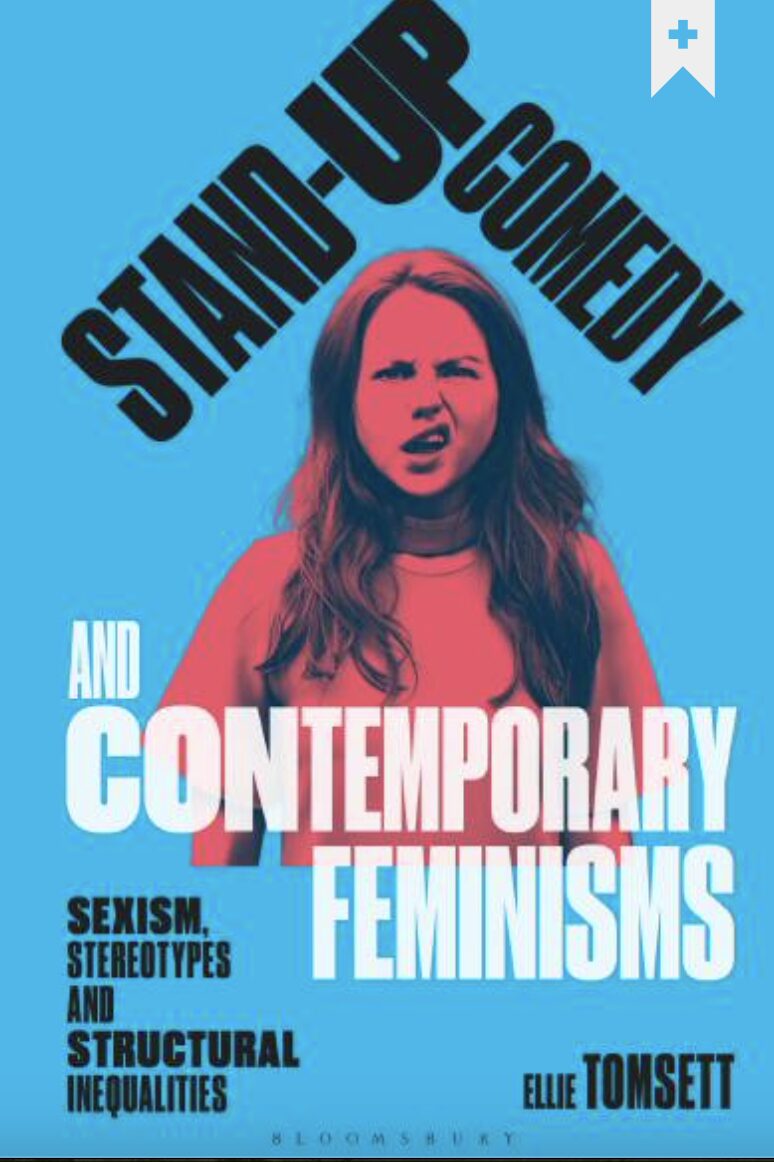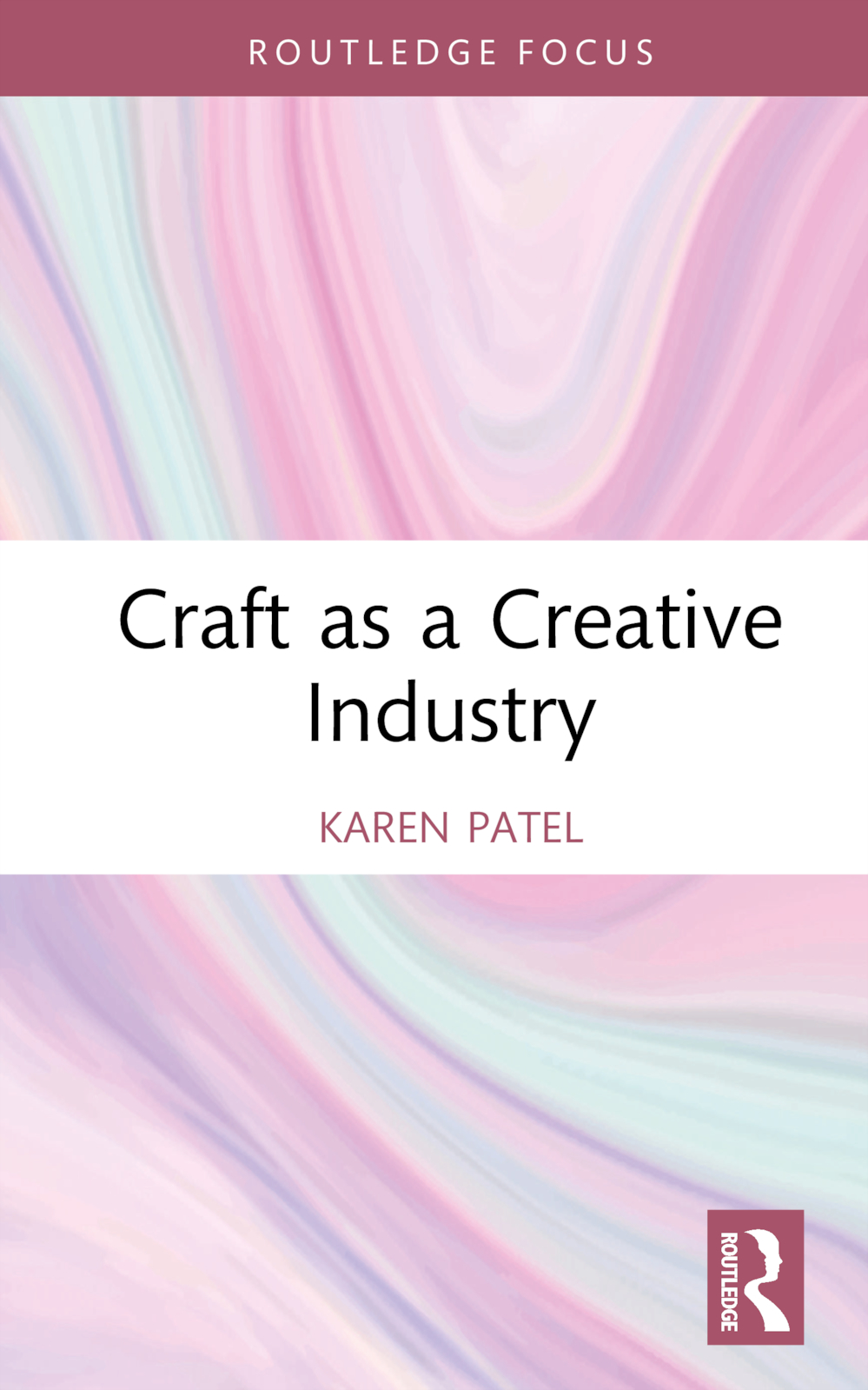
BCMCR 2024-2025 Roundup: Celebrating the Activity and Successes of the Past Year
Reflecting on Centre’s Year…
For this past year of 2024-2025, the Birmingham Centre for Media and Cultural Research has seen an array of different activity occurring that has been facilitated by the incredible members and researchers of the centre. Our activities throughout this year have featured a multitude of events, outputs and practices, and engagements both internally and externally. With a new change in research theme, following the successes of the previous “Audience” theme that was spearheaded by Dr Charlotte Stevens and Dr Hazel Collie, the centre’s activities has continued to diversify. Whilst there is a myriad of activity that could be shared here, this roundup post offers just some highlights in celebration of the efforts of BCMCR members, both academics and PGRs alike. Below, you can click through some of the section links to read about the work that has come out of the centre this year.
Introduction of the New Research Theme: Transgressive Identities and Subjectivities (2024-2026)
As it has been in previous years, 2024 saw the introduction of a new research theme for the centre as a whole. Following the successes of the previous inclination of the centre’s theme, 2024 had the introduction of the new bi-annual theme: “Transgressive Identities and Subjectivities.” This new theme is being led by Dr Poppy Wilde and Dr Matt Grimes and has already seen some versatile activity in terms of member engagement, centre events and its conference.
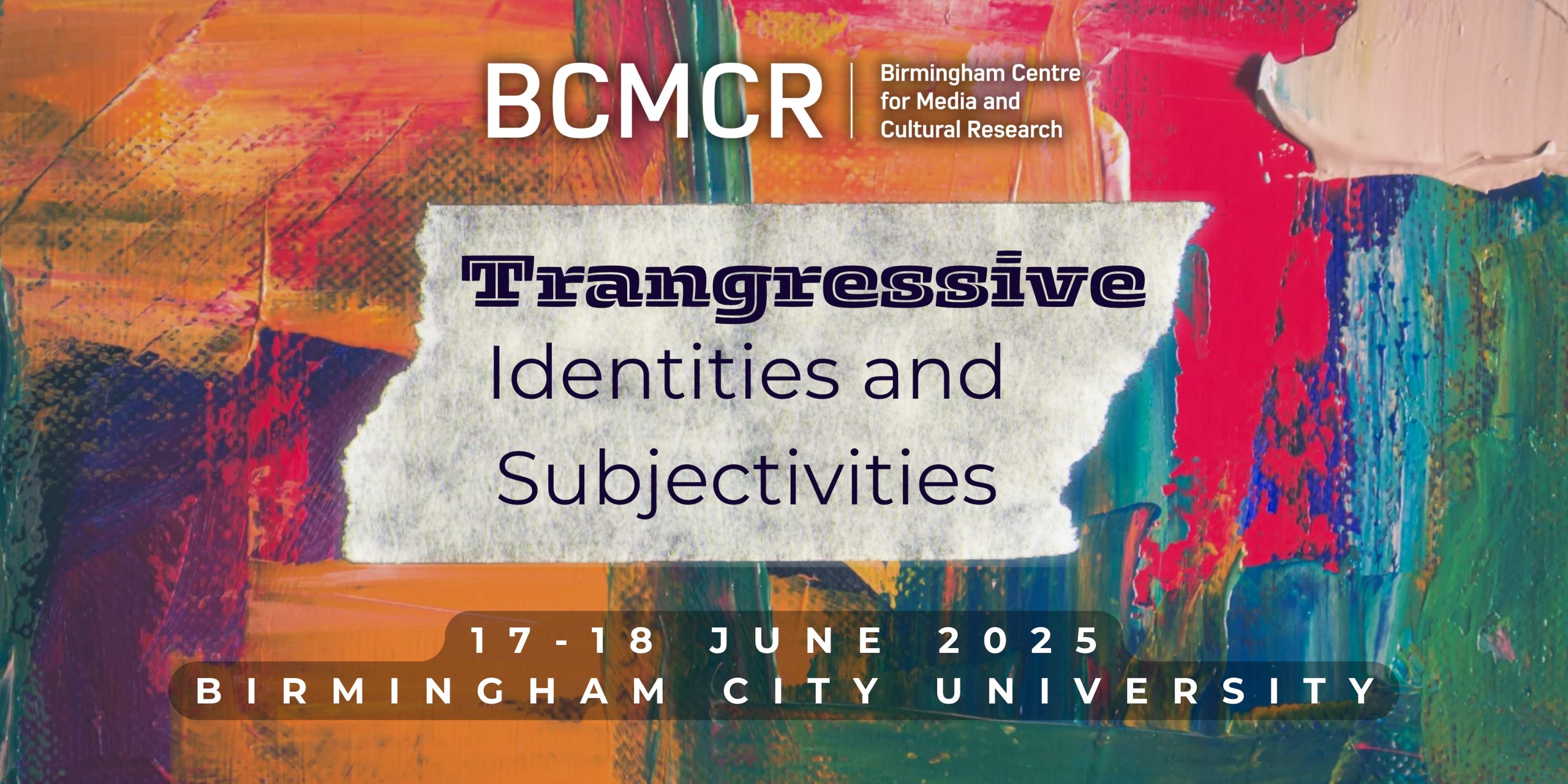
A breakdown of the theme can be found here: Transgressive Identities and Subjectivities – BCMCR Research Theme 2024-2026. Already, activity has emerged within the theme with some events involving live performances and invited guests, parallel to the threads on transgression within the theme’s scope. Details on some of the initial engagements with the theme by the members of the centre can be found here. Poppy and Matt have also co-chaired a conference based on the research theme, with summary of this activity found below in this roundup post. With this theme active and currently underway, we look forward to seeing the upcoming and future activity members have in engaging with ideas of transgression and subjectivity.
The previous inclination of the theme was “Audience,” (2022-2024) – led by Dr Charlotte Stevens and Dr Hazel Collie – which had produced a series of events as part of the centre’s regular programme, a conference and an upcoming edited collection from within the BCMCR Book Series – “BCMCR New Directions in Media and Cultural Research”. A breakdown of the theme can be located here: BCMCR Research Theme for 2022/23 – Audience, with engagements by centre members located here. Further information on the BCMCR Book Series can be found at this link: BCMCR Book Series.
BCMCR Events Programme
As per each year, the centre has hosted a programme of research-aligned events that range from book launches, showcases, screenings and sessions based around the current research theme. Already, within this new research theme, there has been multiple sessions as part of the BCMCR Events Programme that has explored different aspects. Some of these sessions consisted of research clusters responding to the theme, an undergraduate showcase sharing some of the current dissertations being conducted by the College of English and Media’s students, a session inviting new PGRs to share their underway projects, as well as inviting local creative industry and media sector leaders to join us in responding to the focus. Current engagements with the research theme by BCMCR members can be located here.
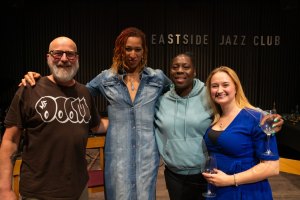
One recent event hosted by the centre in relation to Transgressive Identities and Subjectivities was a session titled “Performing Transgression,” (pictured above) featuring three dynamic artists/performers who join us in the Eastside Jazz Club in the Royal Birmingham Conservatoire to perform and deliver demonstrations. The session consisted of an experimental musical performance, a multi-media theatre piece, and a live music performance. A summary of the event with images of the session and links to performance recordings can be located here.
Beyond events revolving around the research theme, members of BCMCR have also curated some successful exhibitions in collaboration with the ADM Archive based on their respective research projects that has involved the participation of partners and communities, organisations, and networks that they are connected to. Some of the recent exhibitions that BCMCR members have contributed:
- The City Speaks 1971-1979 – Dr. Dave Harte
- An exhibition of alternative press materials published in Birmingham in the 1970s (Grapevine, Brum Book, Broadside) as a part of wider research that Dave has undertaken into researching alternative press. Exhibition was curated through the donation of publications by Brian Horner, a publisher and activist who was central in Birmingham’s alternative press space.
- The Barbara Webster Collection Exhibition as part of the Gender Equality: 40 Years On! Project – Dr. Annette Naudin
- Project explores historical links between current concerns with diversity and equality in the arts, and activities linked to the Women’s Liberation Movement from the mid 1980s, Birmingham, UK. Featured an exhibition of a collection of archival materials donated to the ADM Archives by Barbara Webster, head of the Women’s Unit (1984-87) at Birmingham City Council.
Engaging Within and Beyond: Conference Involvement
BCMCR members have been active in engaging in conferences, delivering aspects of their research internally to fellows as well as to groups and networks at other institutions and organisations. BCMCR has had the privilege of hosting some of these conferences to see our members chair the creation on new, current, and emerging research through conferencing. Below you can read about some of the different engagements that has happened this year.
Mixed Bill 2025: Comedy and Racial Justice Conference – Dr Ellie Tomsett
Founded in 2017 by BCMCR’s Dr Ellie Tomsett and interdisciplinary researchers from Salford, Warwick and Manchester Metropolitan Universities, Mixed Bill is a comedy and gender research network that seeks to explore under-researched aspects of comedy and humour and its intersection with gender identities. The focus of the network is to raise public awareness through events, engaging with those working in the comedy industry, academics and the general public.
The network itself has previously organised a mixture of symposiums and conferences at a variety of institutions. In April 2025, Ellie and the network members organised a conference in collaboration with Manchester Metropolitan University’s Centre for Migration and Postcolonial Studies on the theme “Comedy and Racial Justice” which sought to investigate how comedy functions as a critical tool in the fight for racial justice. The conference brought together academics, comedy industry practitioners and performers to explore the place of comedy in the pursuit for racial justice and liberation. The CFP for the conference can be found here, as well as the programme details here.
For details on Mixed Bills‘ 2022 conference “Comedy in Crisis” that was hosted by BCMCR in terms of papers and programme, please see here.
“Transgressive Identities and Subjectivities” BCMCR Conference
Based on our current bi-annual theme, Dr Poppy Wilde and Dr Matt Grimes co-chaired a successful conference revolving around some of the threads, issues and tensions that comprise their theme scope. Over the course of two days, the conference saw the involvement of various researchers from in and outside BCU join us in exploring some of these ideas. We were fortunate to be joined by a wide array of perspectives and presentations through themed panels and roundtables to consider ideas of transgression, identity, subjectivity and more that had culminated into a rich and nuanced programme. One of the unique aspects of this conference was the involvement of our centre’s very own Popular Music Studies research cluster who had curated a playlist and embarked on a group listening session for everyone in attendance in-person and virtually. This panel featured cluster co-leads Dr Matt Grimes and Dr Asya Dragonova, and PGR members Benjamin Torrens, Peter Newton, Rosemary Williams and Sarah Thirtle. Below you can find the Spotify playlist curated specifically for the conference and panel.
Games Cultures’ Strong Presence at Conferences
Throughout this past year, BCMCR’s Games Cultures research cluster has been a very active member within both the local and international games research community, appearing at and hosting various games conferences. Previously, in the first of 2024, the cluster saw members attend the British Digital Games Research Association (British DiGRA) and DiGRA Brazil 2024 conference – “The Inbetweenness of Play” – that was hosted at Staffordshire University London on 12-13 April 2024. Cluster co-lead Dr Charlotte Stevens offered a summary of the presence of the cluster members at the conference here which had featured academics and PGRs alike. This was immediately followed a few weeks later in May 2024 by the cluster hosting the very successful History of Games 2024 conference that was co-chaired by Dr Alex Wade, Dr Nick Webber and Dr Poppy Wilde. The conference brought together games researchers from across the globe to Birmingham to explore the the theme “families of games” in relation to games history across three days.
- Games Cultures cluster members at History of Games 2024, Birmingham City University
- Games Cultures cluster members at DiGRA 2024 at University of Guadalajara, in Mexico
Over the course of 2024 and 2025, the cluster continued to maintain its strong and prominent presence at conferences within the local and international games research community, increasing the profile of their members and BCMCR. Below are some of the key points in the cluster’s involvement in the games research community throughout the year:
- Presence at the Digital Games Research Association (DiGRA) 2024 Conference – “Playgrounds” – July 1st – 5th 2024. Hosted at the University of Guadalajara, in Mexico.
- Presenters: Charlotte Stevens, Nick Webber, Poppy Wilde, and Dr Will McKeown, and Reuben Mount
- Cluster member Charlotte Stevens shared her thoughts on the cluster’s involvement at DiGRA 2024, emphasising the achievement of having a collective of cluster members all be presenting at such a prestigious conference. Her summary and overview of Games Cultures at DiGRA 2024, including the papers presented at the conference, can be found here.
- Games Cultures Hosts Video Games Cultures 2024 – “The Other Conference“ – September 12th – 14th 2024. Hosted at BCU by Games Cultures, BCMCR.
- Co-chaired by cluster co-leads Charlotte Stevens and Nick Webber, the conference was very successful as it featured delegates from the international games community together at BCU across three days.
- Cluster had a strong presence of presenters at VGC 2024 that had consisted of BCU and external cluster members: Dr Matt Denny (University of Warwick) and Nick Webber, Dr Bettina Bódi (University of Birmingham), Dr Iain Donald (Edinburgh Napier University; Visiting Research Fellow at BCU), Dr Regina Seiwald (University of Birmingham), Dr Esther Wright, and Poppy Wilde.
- A write-up summary by BCU Marketing team is provided here.
- Games Cultures Plays Host for British DiGRA 2025 – “What is British Games Research?“ – 20th – 21st May 2025. Hosted at BCU by Games Cultures, BCMCR.
- The conference was co-chaired by Nick Webber and Poppy Wilde, and also was also a wide success as it involved the participation of 60 delegates from across the UK from undergraduate to established professors coming to BCU to discuss the theme.
- Formats of the conference involved full panel presentations and a series of lightning talks that had occurred across the two days of the conference. The conference ended with a workshop that to collate all the thoughts and ideas shared throughout the conference and feedback for the BDIGRA Board.
- Cluster members had also presented as part of the conference programme: Andrew Bell, Will McKeown, Regina Seiwald, Eugenio Triana, Harri Charles, Charlotte Stevens, Alex Wade, Esther Wright, Iain Donald and Bettina Bódi.
- Conference featured the election of the new BDiGRA Board which now has two of the Games Cultures cluster members: Dr Harri Charles and Mark Chapman
- A write-up summary detailing the BDiGRA 2025 conference by Poppy has been provided here.
- Games Cultures Returns! DiGRA 2025 Conference- “Games at the Crossroads” – 30th June – 4th July 2025. Hosted by the Institute of Digital Games at the University of Malta.
- Presenters: Nick Webber, Poppy Wilde, Will McKeown
- Members of the Games Cultures cluster once again returned to present at the prestigious DiGRA conference, representing the cluster and BCMCR in the international games community. Nick, Poppy and Will participated in various themed panels that were across the five days of the conference, also having the opportunity to share their work and research to the international delegates that were in attendance.
- DiGRA’s 2025 programme and abstracts can be found here.
Cluster member Poppy Wilde has documented her experiences of attending conferences in 2024, both at BCU and other institutions. Read her summary of her experience here, as she discusses the development of her ideas and the opportunities to network with other researchers. Similarly, Andrew Bell who has recently started their PhD in 2024 has shared some of their own experiences as being a member of the local organising committees for some of these conferences, whilst also being a presenter to discuss and share their practice-based research. You can read about Andrew’s achievements in conference engagement and how it has influenced aspects of their doctoral project here, and we look forward to hearing more of their ideas as their project develops.
1st Furry Studies Conference – “Being Furry” – Reuben Mount
In 2024, PGR member Reuben Mount has co-created and co-chaired the very first Furry Studies conference, titled “Being Furry.” The first of its kind, Reuben along with two other academics had organised the 2024 conference in collaboration with the Otterdam Furry Arts Festival and hosted at the Nieuwe Instituut in Rotterdam, the Netherlands. The conference aimed to bring together scholars and enthusiasts together as a first step to formalising the field of ‘furry studies.’ You can view view their 2024 calls for papers here, as well as watch the presentations that were delivered at the conference in the video below/on Youtube:
Now, due to its success and gaining traction amongst academics and communities, Furry Studies returns again for 2025 with a larger committee and event. Furry Studies 2025 – “Furry in the World; The World in Furry” will be taking place at Pacific Lutheran University in Washington. Organising the conference is currently underway, and you can view more about Furry Studies 2025 including their calls for papers here.
Journalism Education Reimagined – Dr Rachel-Ann Charles
Most recently, Dr Rachel-Ann Charles collaborated with the Caribbean School of Media and Communications (CARIMAC) at the University of the West Indies in Jamaica, as well as the Symbiosis Institute of Media and Communication (SCMC) at the Symbiosis International University in India to deliver a virtual groundbreaking two days of dialogue and exchanges with journalists and academics across the globe. The conference “Journalism Education Reimagined: Global Perspectives, Future Pathways” created an international dialogue to reimagine Journalism Education in response to growing pressures around industry and policy changes, and brought together Global South with Global North to synthesise knowledge and innovations that is occurring globally. Across the two days – virtually attended by over 100 delegates – researchers, professionals, and journalists delivered a variety of panel presentations, roundtable and working group discussions. The outcome of this conference is the formation basis for an emerging research network that responds to the discussions that came out of the conference to affirm stronger connectivity and collaboration between the Global North and Global South.
A summary and details of this conference will be shared on the BCMCR website soon.
Outputs & Publications
Throughout this past year, some BCMCR members have also been engaged in publications, releasing various outputs, publications and edited collections as part of their on-going research and projects. Through these releases, they have been continuing to advance the conversations of their respective fields, offer new perspectives, and address some of the key issues being faced. More information about these major works (summaries, publication details, where to access) as well as previous outputs by BCMCR members can be located here (“Staff Outputs”).
Some of the BCMCR members are actively engaged in practice-based research, delivering their outputs as a form of practice to share their knowledge, expertise and explorations. Meera Darji, a practice-based researcher and filmmaker, organised a screening of her award-winning documentary “Transindia: The Story of India’s Hijra’s” that invited academics and members of the public to join in engaging with such a powerful and relevant piece. Transindia is a 30-minute documentary that explores the transgender community (also known as Hijras) in Gujarat, India, and takes you on a journey on their true lifestyles, a discovery of their beliefs and cultures, and an insight in how they struggle to find a place in the Indian society. The trailer for Transindia can be watched below:
Other BCMCR members have also been involved in book and chapter publications, as well as part of editorial teams to release edited collections. Below are just some of the recent publication outputs that BCMCR members have been involved with, some of which have also been awarded for their contribution and currency around some of the key issues in media and culture (see Poppy’s post here on Working Women on Screen winning the award for “Best Edited Collection 2025” at the BAFTSS Awards).
- Sexualised Masculinity – John Mercer and Clarissa Smith
- Punk, Ageing and Time – Edited by Laura Way and Matt Grimes
- Working Women on Screen – Edited by Ellie Tomsett, Nathalie Weidhase, and Poppy Wilde
- Stand-Up Comedy and Contemporary Feminisms – Ellie Tomsett
- Posthuman Gaming – Poppy Wilde
- Craft as a Creative Industry – Karen Patel
PhD Completions
BCMCR has also seen the completion of multiple PhDs happen during the 2024-2025, with these PGRs having successfully submitted and defending their thesis/projects. We hugely congratulate these members on this wonderful achievement, and wish them all the successes and support in their careers. Below you can find a list of some of these recent completions containing links to the BCU Open Access Repository to access their thesis submissions:
- Ross Hawkes (2024) – The semi-professional journalist: An investigation into the practice and experiences of independent local news journalists
- Daniel Sheppard (2024) – Gays, Women, and Chainsaws: Queer Approaches to Characterisation and Identification in Contemporary Slasher Film and Television, 1996-2019
- Mengqi (Sam) Li (2024) – Beyond Stereotypes: Exploring the Multi-layered Portray of China in and around Video Games
- Claire-Gillian McIntosh (2024) – Teaching Through Music: The Curriculum for Excellence and Interdisciplinary Learning
- Lee Griffiths (2024) – Words, Music, Entanglements: Diffractive Readings of Contemporary Jazz Recordings
- Hassan Hussain (2025) – De/Construction of Gay Men in Twenty-First Century British Theatre (2001-2016)
- Harrison (Harri) Charles (2025) – “Playing with Gay Sex”: Exploring the Sexual Play of Gay Adult Video Games
- Alan Musson (2025) – Documenting the Midland Youth Jazz Orchestra 1968-1980 through radio-style production
- Simon Crisp (2025) – Mediating yoga: An exploration of the cultural translation of yoga in the UK through its popular representations (1955-1975)
Research Projects at BCMCR
Members of BCMCR have also been active within a variety of (funded) research projects in collaborating on a series of research engagements in internal project teams and with external partners and institutions. Below are a small selection of some of the recent projects that BCMCR members have been behind. To see a full list of current and completed research projects, please visit the project page of BCMCR here and the BCU website here.
Global Reggae Research Project
The Global Reggae Research Project brings together researchers from the Faculty of Arts, Design and Media at Birmingham City University with those from the Faculty of Humanities and Education at the University of West Indies to explore the development of reggae across the world. The project itself features BCMCR members such as Professor Tim Wall (project co-lead), Dr Pedro Cravinho, Dr Rachel-Ann Charles, Dr Matt Grimes and PGR member Benjamin Torrens. Part of this project has also involved hosting iterations of the Global Reggae Conference (for which BCU hosted the conference in 2018).
You can read more about this project here.
Gender Equality: 40 Years On! Project
Led by Dr Annette Naudin, this project presents the work and activism of Birmingham-based women in the mid-1980s, exploring the historical links between current concerns with diversity and equality in the arts and the activities linked to the Women’s Liberation Movement in 1980s Birmingham. The project consisted of an exhibition sharing archival materials donated to the ADM Archives by Barbara Webster (head of the Women’s Unit at Birmingham City Council, 1984-1987), roundtable discussions and a series of oral history podcasts capturing the voices and stories of women involved in addressing inequalities in Birmingham in the 1980s. Information about Annette’s project can be found on BCMCR here featuring a breakdown of the project and some associated materials, as well as on BCU here. The podcast episodes that have been produced as a part of Annette’s project can be found at the linked pages and below:
The Europe that Gay Porn Built, 1945-2000 Project
Currently underway, “The Europe that Gay Porn Built, 1945-2000” project aims to map the European networks of production, circulation and consumption of gay erotica and porn magazines published between the end of WWII and the turn of the 21st Century, and seeks to develop a cultural study of “Europe” as imagined by gay men. The project involves Professor John Mercer as one of the project members, as it seeks to explore how gay magazines of this period shaped how gay men in Europe say each other alongside clashes of ideas of Europe promoted by political institutions. More details about this project and its activity will be shared in due course.
You can read more about this project here.

